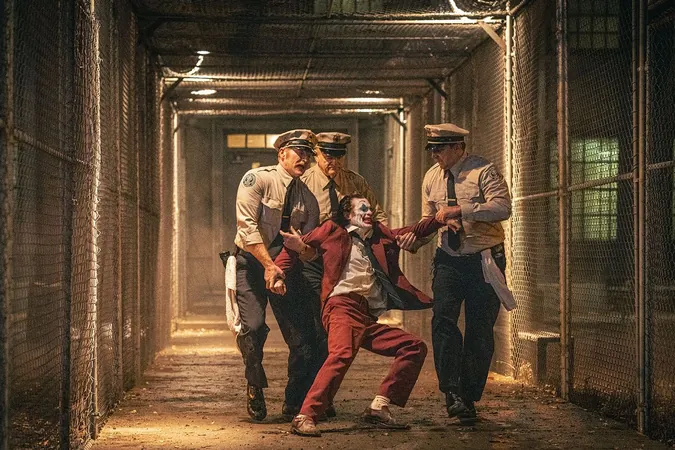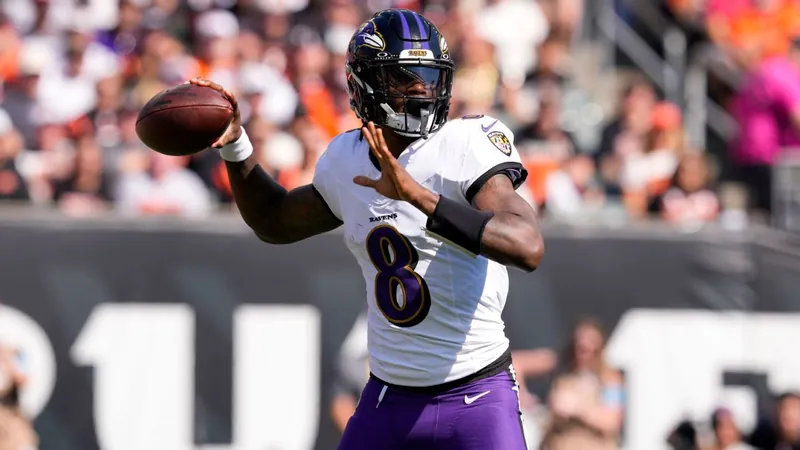
Joker: Folie à Deux
2024-10-08
Author: Ting
A Thought-Provoking Exploration of Mental Illness that Challenges Stigma
When "Joker" premiered in 2019, it ignited a heated discussion about its representation of mental illness, with many critics pointing out its shallow and often problematic portrayals. While undeniably captivating—a gritty psychological thriller reminiscent of Martin Scorsese's style—the film veered dangerously into stigmatizing depictions through its focus on Arthur Fleck’s (played masterfully by Joaquin Phoenix) myriad psychological disorders. Audiences, enthralled by the action-heavy conclusion, equated his psychological struggles with the ensuing graphic violence, leading to concerns about the film's impact on public perceptions of mental health.
Despite the controversy, "Joker" became a box office phenomenon, grossing over $1 billion worldwide and securing its place among IMDB's Top 250 Movies of All Time. This success inevitably paved the way for a sequel, "Joker: Folie à Deux," which intriguingly references a real mental health condition known as folie à deux or shared psychosis. This mental health issue arises when delusional beliefs are transmitted between individuals in close relationships—a dynamic that the film seeks to explore in-depth.
What sets "Joker: Folie à Deux" apart from its predecessor is its earnest intention to present nuanced depictions of mental illness, moving beyond the sensationalism that marked the first installment. The film’s narrative centers on Fleck and his love interest, Harleen "Lee" Quinzel (played by Lady Gaga), as they engage in a shared delusion, reinforcing the film's titular theme. Experts on folie à deux have noted that the movie's portrayal resonates with the real-life complexities of this condition, which remains challenging to study due to the few documented cases.
Dr. Sanja Bjelan has highlighted the rarity of identified cases of folie à deux, emphasizing its significance as it garners wider media attention. She explained that for it to qualify as folie à deux, the delusions must be similar enough for observers to deduce their transmission, without being attributable to another psychotic disorder or substance-induced effects.
Rather than deepening the stigma surrounding mental illnesses, "Joker: Folie à Deux" emerges as a reflective narrative that prompts viewers to question societal attitudes toward those grappling with psychological disorders. The film deftly navigates the relationship between mental health and societal issues, reminding audiences that the consequences of mental illness are often rooted in broader societal injustices rather than mere violent tendencies.
Dr. Giulia Menculini from the University of Perugia emphasizes that media depictions of severe mental health issues should work towards dismantling stigma. She urges a shift from viewing mental illness as a societal threat to acknowledging individuals as complex beings deserving of understanding and compassion. "Joker: Folie à Deux" effectively captures this sentiment, allowing for the exploration of deep-seated emotions associated with mental health struggles, while avoiding hackneyed narratives traditionally seen in comic book adaptations.
The film is rich with poignant scenarios that reflect genuine struggles faced by individuals with psychological disorders, such as misdiagnosis, condescension from caregivers, and exploitation by society. Unlike its predecessor, which framed Arthur Fleck as a stereotypical "loser" pushed to violence, the sequel delves into these themes with an emphasis on empathy and societal critique.
As the plot unfolds, Fleck's interactions and shared delusions with Quinzel and other characters expose raw societal truths about the consequences of mental illness—an exploration further deepened by the character dynamics at play. A pivotal scene involves Fleck confronting a witness to his past crimes, which escalates the narrative's stakes and leads to profound realizations about the moral implications of their shared delusion.
Ultimately, "Joker: Folie à Deux" stands out by challenging its audience to reflect on the nature of mental illness and society's treatment of those who suffer from it. While many films invoke violence as a narrative crutch when tackling mental health themes, this sequel opts for a reflective approach, urging viewers to confront uncomfortable realities and foster a more compassionate understanding of mental health. For "Joker: Folie à Deux" to create lasting impact, it requires audiences to engage deeply with its themes and acknowledge the often invisible suffering faced by individuals with mental health conditions.
As mental health discussions continue to evolve, "Joker: Folie à Deux" may serve as a catalyst for compassion, urging society to rethink its understanding of psychological illness—well beyond mere entertainment.


 Brasil (PT)
Brasil (PT)
 Canada (EN)
Canada (EN)
 Chile (ES)
Chile (ES)
 España (ES)
España (ES)
 France (FR)
France (FR)
 Hong Kong (EN)
Hong Kong (EN)
 Italia (IT)
Italia (IT)
 日本 (JA)
日本 (JA)
 Magyarország (HU)
Magyarország (HU)
 Norge (NO)
Norge (NO)
 Polska (PL)
Polska (PL)
 Schweiz (DE)
Schweiz (DE)
 Singapore (EN)
Singapore (EN)
 Sverige (SV)
Sverige (SV)
 Suomi (FI)
Suomi (FI)
 Türkiye (TR)
Türkiye (TR)